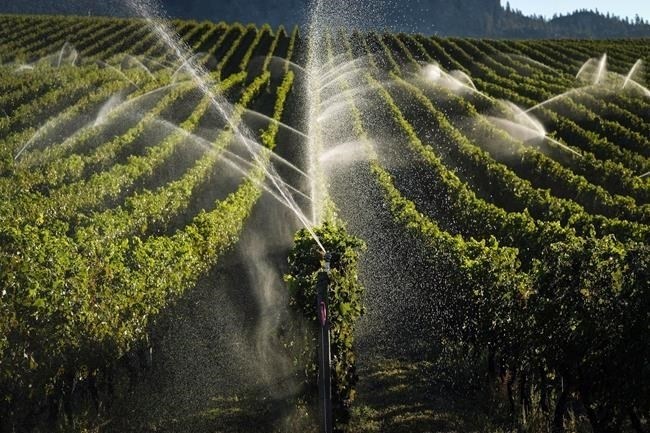Winter cold snap in Okanagan cut 2023 grape crop by up to 56 per cent: growers

Wine growers in British Columbia are forecasting short-term and long-term losses from a bitter cold snap in the province last winter that devastated vineyards.
Last December's freeze that saw temperatures in the Okanagan dip to minus 30 C, will result in severe immediate and lasting impacts across the industry, hitting vineyards, harvests, products, revenues and jobs, wine producers said Thursday at a news conference at a Kelowna winery.
The fall-out from the cold snap has the potential to cut this year's grape and wine production by between 39 per cent and 56 per cent, with direct revenue losses of up to $145 million, Miles Prodan, Wine Growers B.C. president said in a statement.
The extent of the cold weather damage was more fully realized this spring, he said.
"Following bud break, our industry-wide research concluded that our worst fears were realized with a 54 per cent reduction in 2023, and 45 per cent of total planted acreage suffering long-term irreparable damage."
Prodan said about 22 per cent of vines need to be replaced.
An industry-commissioned survey concluded the impact of the "climate-change related" freeze could result in the loss of 381 jobs, representing a 20 per cent reduction in the industry's workforce, he said.
The grape varieties that sustained the greatest weather-related losses include those used to make Syrah, Merlot and Cabernet Sauvignon, he said, adding growers suggest people stock up on B.C. wines for the next 24 months.
The industry is appealing to both the provincial and federal governments for additional supports, including a dedicated agriculture recovery grant for crisis relief.
Prodan said the industry is also calling for the B.C. crop insurance program to cover climate-change related events such as last winter's freeze.
This report by The Canadian Press was first published June 22, 2023.


